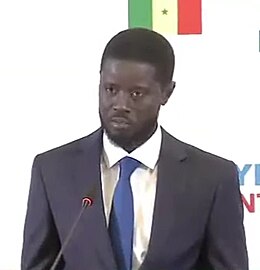Bassirou Diomaye Faye has been sworn in as President of Senegal. In just a few weeks, Faye went from prison to the presidential palace in an electoral process that, despite the difficult path it took and the country’s difficult context, managed to conclude with clear results.
The elections were held on 24 March, just two weeks after Faye and Ousmane Sonko, from the rival party of the former president, had been released from prison following an amnesty granted by the former president, Macky Sall. They campaigned on a platform of fighting corruption and improving the management of natural resources, the basis of the country’s economy. Young people, frustrated by unemployment, lack of opportunity, and no future, played a key role in both his campaign and the outcome of the vote. It was also young people who suffered from the fierce repression that had been unleashed in Senegal months earlier against the strong demonstrations that had taken place in the country, also linked to the arrest of Sonko and Faye and the former president’s attempt to seek re-election, even though this was not provided for in the constitution.
“It is the culmination of a long struggle for democracy and the rule of law,” said Aissata Sagna, a 39-year-old laborer who worked on Faye’s campaign. “It is a day of celebration for us, even though we have lost young people who were killed during the demonstrations. Undoubtedly, these elections strengthen the stability of democracy not only in Senegal but also in West Africa.
Analysts agree that the formation of Faye’s government will be the first sign that his administration is off to a good start. Alioune Tine, founder of the Senegalese think-tank Afrikajom Center, said: “It will be the first concrete message he sends to the Senegalese people. The size, diversity, and profiles will be closely scrutinized to see if they meet the demand for a break with the past.










